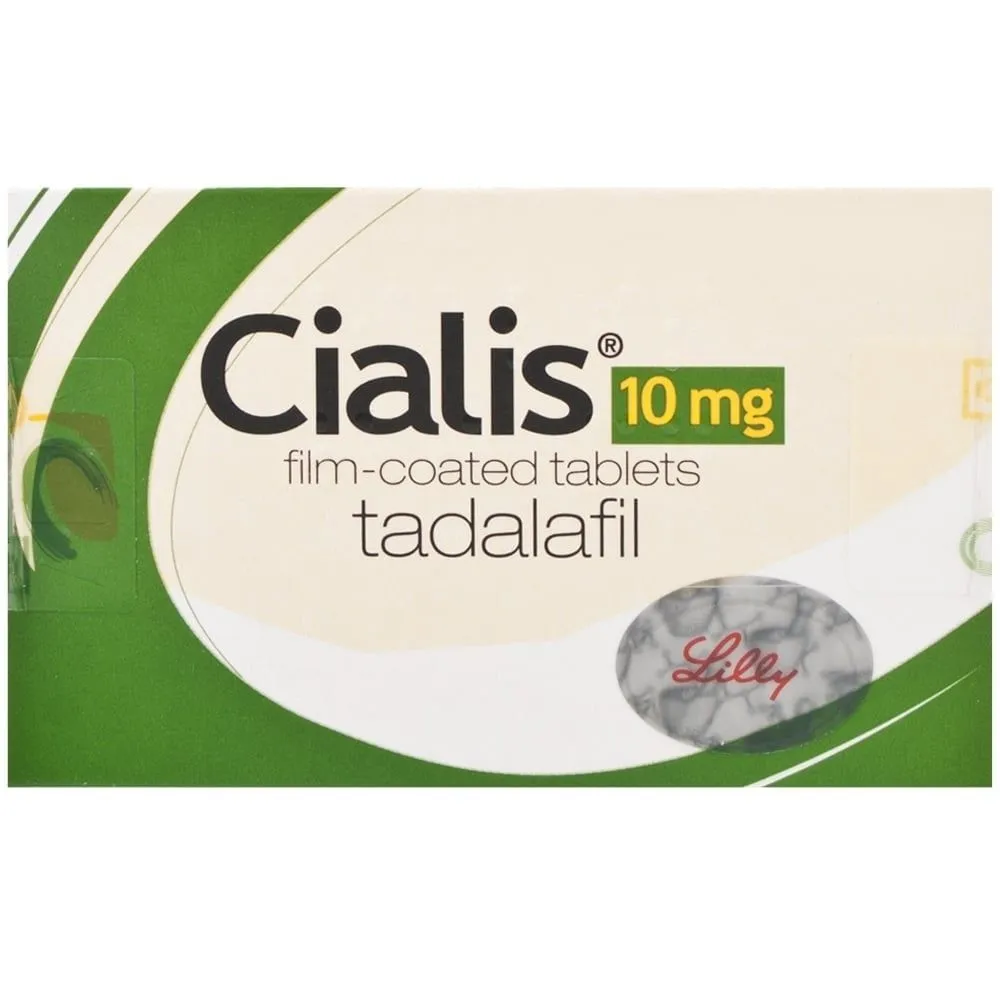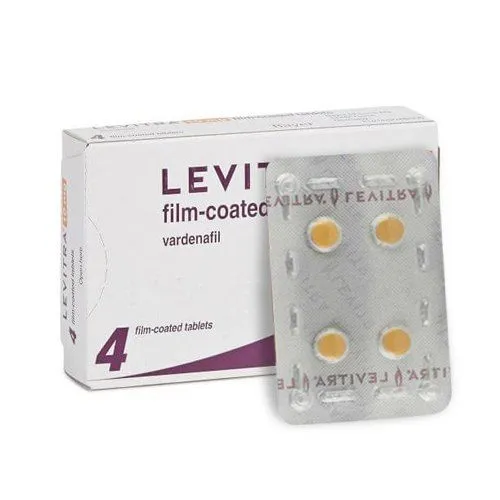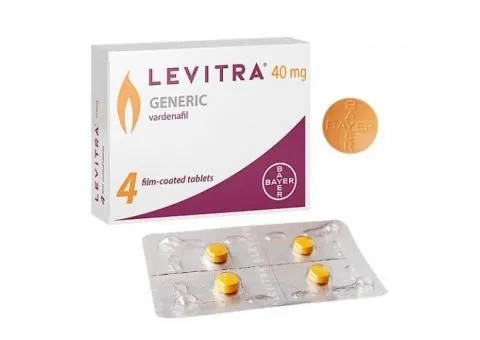When you compare Levitra vs Cialis, you’re looking at two potent prescription-based Erectile Dysfunction (ED) medications that are different in their onset and duration. Both belong to the Phosphodiesterase Type 5 (PDE5) inhibitor class and help you achieve firmer, longer-lasting erections. However, each offers unique benefits that suit your lifestyle and needs in different ways.
Levitra, with the active ingredient Vardenafil, usually works faster and may be more suitable if you want a medication that kicks in quickly, sometimes within 15 minutes. Cialis, with Tadalafil, on the other hand, stands out for its long duration, lasting up to 36 hours, which provides more flexibility and spontaneity.
You should also consider side effects, dosage options, and how often you plan to have sex, as these factors influence which medication suits the best. This article gives a comprehensive comparison of these two medications, helping you understand how each works and which one may be the better fit for you.
Levitra vs Cialis: Key differences
Levitra and Cialis treat ED effectively, but they vary in how fast they work, how long they last, and how they fit your sexual routine. The following table highlights such key distinctions between these medications.
| Feature | Levitra | Cialis |
| Uses | Prescription-based medication for ED | Prescription-based medicine for ED and Benign Prostate Hyperplasia (BPH) |
| Manufacturer | Bayer Pharmaceuticals | Eli Lily |
| Active ingredient | Vardenafil | Tadalafil |
| Year of FDA approval | 2003 | 2003 (for ED), 2011 (for BPH) |
| Appearance | Orange, film-coated, round-shaped tablet | Yellow, film-coated, oval/almond-shaped tablet |
| Strengths | Available in 5 mg, 10 mg, and 20 mg tablets | 2.5 mg, 5 mg, 10 mg and 20 mg |
| Recommended dosage | The usual starting dose is 10 mg before sexual activity | 10 mg as the starting dose, as needed; 2.5 mg for daily use; For BPH, 5 mg as the starting dose |
| Onset of action | 25-60 minutes (often faster) | 30-60 minutes |
| Effect of food | Fatty meals can have an impact on their effectiveness | Less affected by food |
| Duration | Effects last for about 4-6 hours, possibly a little longer for some (up to 8 hours) | Effects last for about 36 hours (also known as the weekend pill) |
| Side effects | Headache, hot flushes, upset stomach, stuffy/runny nose; lesser visual changes | Similar side effects, along with back pain |
Save up to 90% on your medicine bills

Cialis 10 Mg Tablet

Vidalista 60 Mg

Levitra 20 Mg

Levitra 40 Mg
Branding and FDA-approval status
Levitra is the brand name for Vardenafil, a PDE5 inhibitor that treats Erectile Dysfunction. The FDA approved Levitra for ED in 2003, which Bayer developed in collaboration with GlaxoSmithKline.
Cialis, with the active salt Tadalafil, was developed by Eli Lilly and received FDA approval in 2003 as well. In 2011, its approval expanded beyond Erectile Dysfunction to include Benign Prostatic Hyperplasia (BPH). Its prolonged duration of action has contributed to its strong brand identity.
Thus, both Levitra and Cialis undergo rigorous clinical testing, are FDA-regulated, and doctors widely prescribe them. When you use them under proper medical guidance, they give safe and effective treatment for ED, and in Cialis’s case, also provide relief from BPH symptoms.
Appearnace
Levitra and Cialis differ noticeably in appearance, making them easily identifiable. Levitra tablets typically come in an orange, round-shaped form. It has the BAYER cross on one side and the dose strength, such as 2.5, 5, 10, or 20, on the other. This makes it easy for you to confirm the correct dose.
Cialis is known for its distinctive yellow, almond or oval-shaped tablet. It also includes a clear imprint identifying the dose. That is, each tablet is imprinted with a “C” and the dosage strength, such as C 2 1/2 (for 2.5 mg), C 5, C 10, or C 20.
The color and shape differences enable you to quickly distinguish between the two medications, even when generics vary in appearance due to different manufacturers.
Dosage
For ED, both Levitra and Cialis are taken before sexual activity, typically 30-60 minutes prior. Levitra comes in the 5 mg, 10 mg, and 20 mg strengths, with 10 mg usually prescribed as the starting dose.
Cialis dosage is available in 2.5 mg, 5 mg, 10 mg, and 20 mg tablet strengths. For as-needed use, 10 mg is commonly recommended, while 2.5 mg is prescribed for daily dosing. This daily option gives you the advantage of maintaining steady levels of the medicine in your body, allowing more spontaneous sexual activity, something Levitra does not offer.
Additionally, for BPH, the recommended dosage of Cialis is 5 mg once daily. This same daily dose can also be used to manage both ED and BPH simultaneously, providing ongoing relief from urinary symptoms while supporting consistent erectile function.
Doctors carefully adjust the dose of either medication to match your individual needs. They consider the overall health, other medications you take, and how the body responds to the treatment to enhance effectiveness while minimizing side effects.
Onset of action and duration
Both Levitra and Cialis help achieve erections, but they differ in how quickly they work and how long their effects last. Here’s how they differ in onset and duration:
- Levitra: It typically begins to work within 25-30 minutes. Some men may achieve successful intercourse as early as 10 minutes after dosing, with full effects by 30-60 minutes, particularly on an empty stomach. The effects generally last 4-6 hours, which can extend up to 8 hours.
- Cialis: It usually takes effect within 30 minutes to 2 hours, with reliable efficacy around 30-60 minutes. Its absorption is minimally affected by food. The duration of action can extend up to 36 hours, allowing for better flexibility in timing sexual activity.
If you want a longer window for sexual activity, Cialis can be a better choice. If you prefer a faster onset and more immediate effects, Levitra can be a suitable option. A doctor can help determine which option best suits your needs.
Side effects
Both Levitra and Cialis are generally well-tolerated, but like any medication, they can also cause side effects. Most of them are mild and will go away as your body adjusts to the treatment. Here are some common side effects that both ED pills have:
- Headache
- Facial flushing
- Nasal congestion or a runny nose
- Indigestion, mild stomach upset
- Dizziness or lightheadedness
Although rare, both medications can cause severe reactions, like sudden vision or hearing loss, chest pain, rapid or irregular heartbeat, or a prolonged erection for more than 4 hours (Priapism). You should get immediate medical help in such cases. Back pain can occur with both medications, but it is reported more frequently with Cialis.
Overall, if you’re sensitive to back pain or muscle aches, Levitra may provide more comfort. At the same time, Cialis can be a better option if you tolerate those effects well and prefer a longer-lasting action.
Effect of food
High-fat meals slow down the absorption of Levitra, delaying its onset of action. When you take it after a heavy or greasy meal, you may feel reduced or slower effects. For the best results, take Levitra on an empty stomach or after a light meal.
Cialis maintains its effectiveness regardless of whether food is consumed. You can take it with or without meals, even high-fat foods. It does not affect how quickly the medication works. This provides more flexibility and eliminates the need to plan meals around specific eating times.
Thus, you need to be more mindful of meals when taking Levitra, while Cialis allows you to dose freely without strictly adjusting food habits.
Levitra vs Cialis cost
When comparing the cost between these two medications, Levitra tablets in the 10 mg to 20 mg range typically cost up to $65 per pill, while Cialis tablets in the same strength range cost $20-$58 per pill. This makes Levitra generally more expensive than Cialis. Prices may vary based on the pharmacy, location, and insurance coverage, but the difference is usually consistent.
If cost or budget is a factor you consider, Cialis offers a more cost-effective option, while still providing effective treatment for Erectile Dysfunction.
Precautions
While both Levitra and Cialis are generally safe when used as prescribed, there are some precautions you should be aware of. Here are some general precautions for both medications:
- Avoid these medications if you have severe heart disease, a recent heart attack, unstable Angina, or uncontrolled High or Low Blood Pressure.
- Do not use Levitra or Cialis together with nitrates, which are prescribed for chest pain, as it increases the risk of Low Blood Pressure.
- Certain medications, such as alpha-blockers, antifungals, some antibiotics, and HIV protease inhibitors, may interact with these ED medications.
- Dose adjustments may be needed if you have moderate to severe liver or kidney problems.
- Do not use this product if you are allergic to Vardenafil, Tadalafil, or any of the ingredients in the tablets.
- Seek medical advice if you have a history of sudden vision loss, Retinitis Pigmentosa, or sudden hearing changes.
- Stop using the medication and seek immediate medical advice if an erection lasts longer than 4 hours (Priapism).
- Limit alcohol intake, as excessive consumption can reduce effectiveness and increase the risk of side effects.
Conclusion
When comparing Levitra vs Cialis, both medications effectively treat Erectile Dysfunction, but the best choice depends on your individual needs and lifestyle. Levitra offers a fast onset of action, sometimes within 10 minutes, making it suitable if you prefer a medication that works reliably for a shorter window of time. Cialis provides the added advantage of long-lasting effects, up to 36 hours, and a daily dosing option that supports more spontaneous intimacy.
Both medications can interact with nitrates, certain blood pressure medications, and health conditions such as Diabetes. Since they affect your body differently, it’s essential to get a thorough evaluation from your healthcare provider. A healthcare professional can determine which option is truly the safest and most effective for you, making sure you achieve the best possible results with confidence.

Frequently Asked Questions
Can you take Cialis and Levitra together?
No, you should not take Cialis and Levitra together. Taking two ED medications can increase the risk of side effects such as low blood pressure, dizziness, headache, or Priapism. Always use only one PDE5 inhibitor at a time and follow your doctor’s instructions for safe and effective use.
Why was Levitra taken off the market?
Levitra tablets were discontinued in some regions, including the United States, not because they were ineffective, but because the manufacturer, Bayer, stopped marketing the brand. The active ingredient, Vardenafil, remains available as generic tablets and other formulations, such as Staxyn ODT, ensuring continued access to effective ED treatment.
Can I take Cialis with Metoprolol?
No, you should not take Cialis with Metoprolol without consulting your doctor. Both medicines can lower blood pressure, and combining them may increase the risk of dizziness, fainting, or other cardiovascular effects. Your doctor can advise on whether it is safe and adjust the doses as needed.
Can Cialis cause bleeding?
Yes, although it is rare, Cialis can increase the risk of nosebleeds or minor bleeding due to the platelet effect, especially if you have bleeding disorders. If you experience unusual or persistent bleeding, you should contact your doctor as soon as possible for evaluation and guidance.
Cheap Medicine Shop only refers to credible, authoritative sources for our content. If you’re curious about how we ensure the integrity of our content, we encourage you to read our Content Information Policy.














